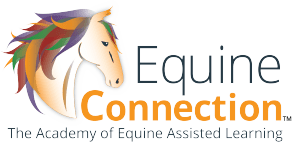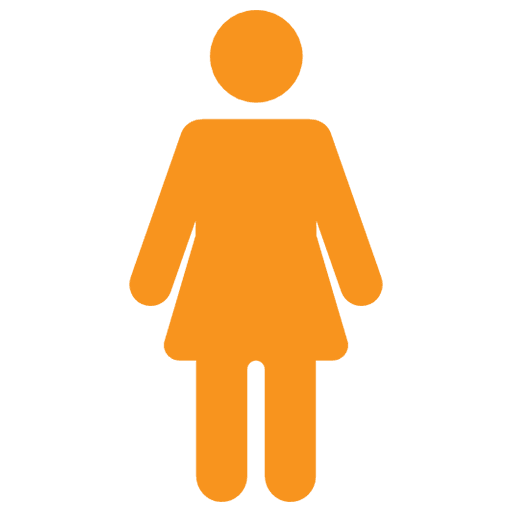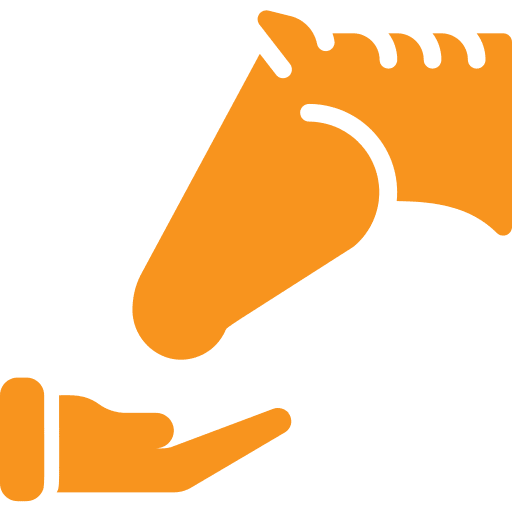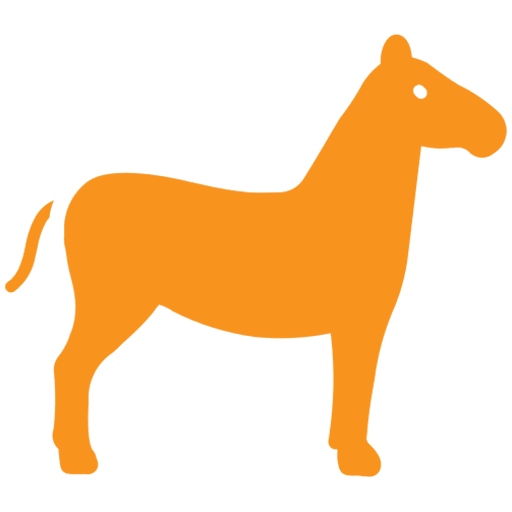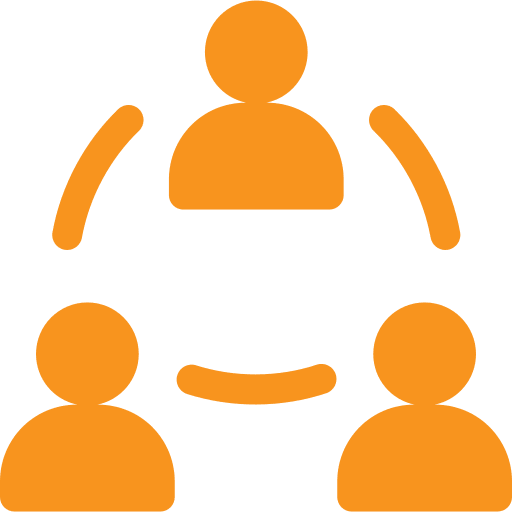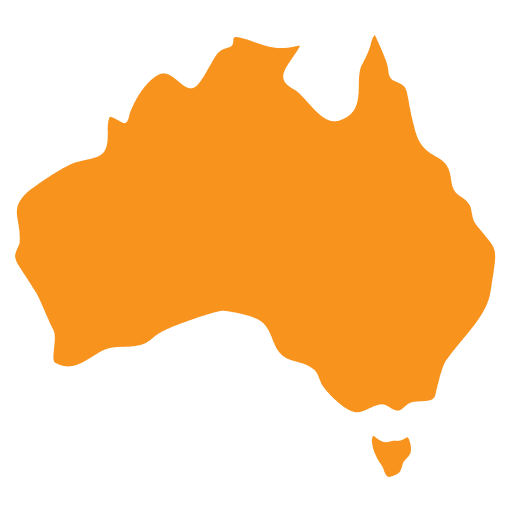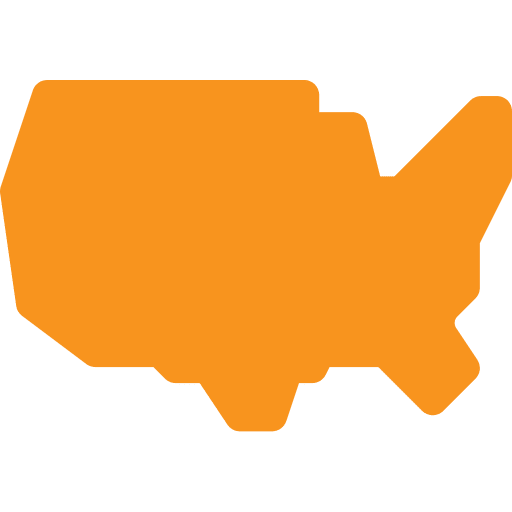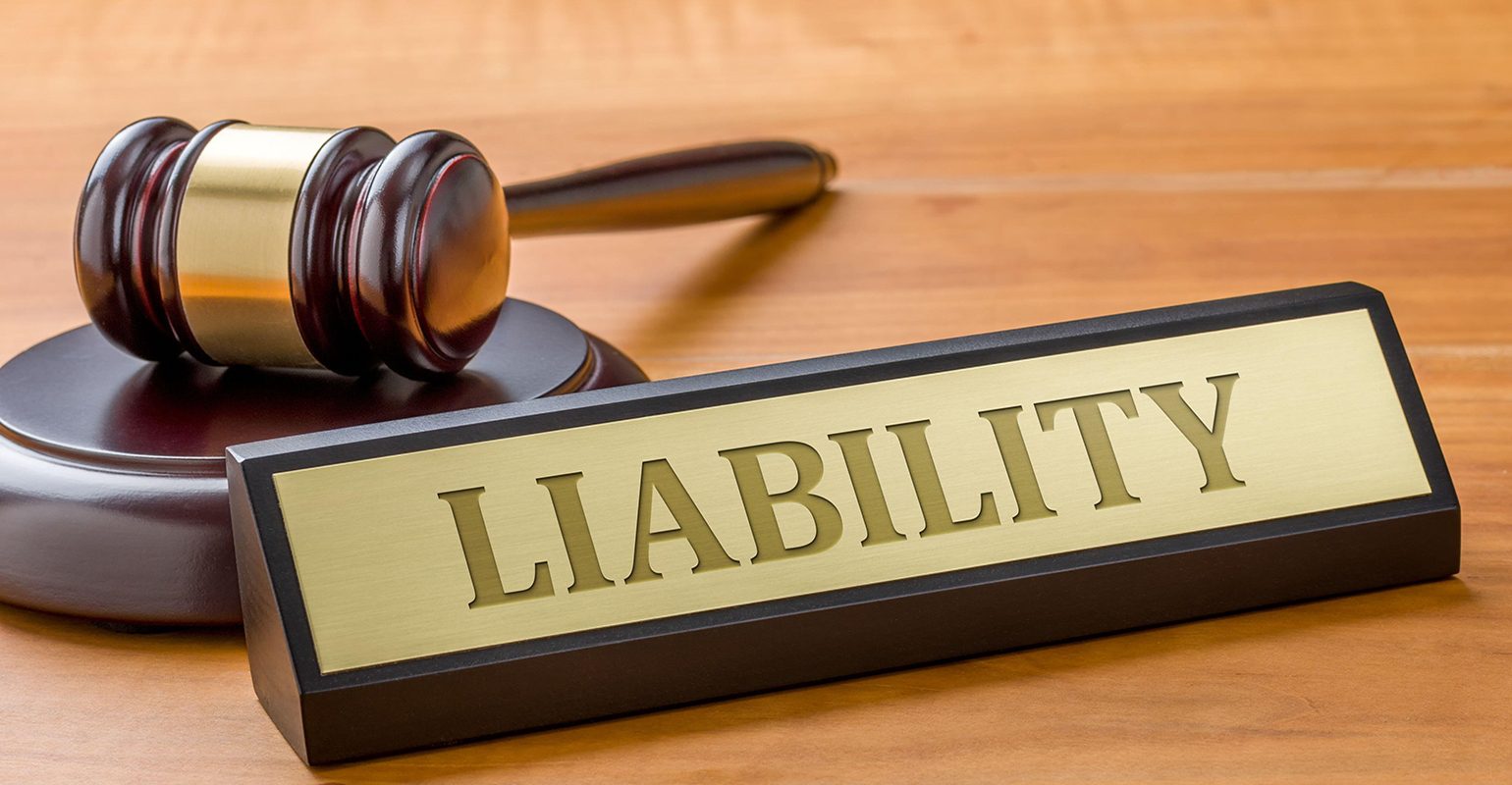Join Equine Connection's FREE "Email Newsletter" Made For Horse Lovers & Equine Business Alike….
We are pretty excited to be talking about this post because it might be a bit on the controversial side.
Are you a liability to your equine business or to the equine field as a whole?
Now that's a really interesting question because sometimes people don't know what they don't know until they do know. I’m hopefully going to open your brain a little bit more to the awareness of these liabilities. This way you can know if you and your horses are safe and of course, your clients. This isn't a place of judgment. This is a self-reflection piece that I’ve had to do my entire business to make sure that I’m staying on top of it.
You're in the presence of a horse every day. You know what the presence of the horse actually means. For all the clients that need us and a world that actually needs you. I think that's the biggest thing.
Even going into this liability piece is part of understanding how the world needs you. And the world needs you more than ever because mental wellness alone is through the roof. Taking this into consideration. How the world needs you is that your community needs you. The children who are lost and lonely, confused in their little worlds. Families who have lost jobs, who have lost loved ones, there's so much out there adding to the other cruelties of the real world. There are many in the loops and facing the walls of depression. Many suffer from PTSD from their jobs, chaotic lives, the environment they live in, there’s only so much a person can take.
It doesn't matter if you come from a little town of eighty humans or if you're in a hub city of over a million (which can also be one of the loneliest places in the world). This program and these courses working with horses are the most life changing for helping people overcome personal issues.
There are always results when your clients come in and take one of your programs, because they're actually listening to the horse, the horse is the teacher. We are not the teachers. We don't put human thoughts onto our horses. That really does lead us into the liability piece if we did. Remember a horse can only be a horse. The one thing we really have to consider in that liability piece. The number one thing a horse needs to feel is safe. Why do we know that?
Because our horse is a prey animal.
The prey animal is the most intuitive and feeling of all beings, they're not overthinking. They can’t, they wouldn’t be safe if they did.
We have our intuitive brain as horses do. Except, what we use much more of is our frontal cortex as humans. We overthink. When we get a feeling we go to our brain and try to convince our brain out of our intuitive gut feeling. Horses don't do that. They can't do that because of survival alone. They need to hear, see and feel. They go ten times further than we do as humans.
So they're always about who's going to kill me? And what isn't going to kill me? There are two thoughts. (We as humans don't think like that. We have many more thoughts.)
The culture is now keeping horses safe because that is the number one thing that they always have to feel. Understanding that is helping us to not be that liability. If we can keep our horse safe then we keep all humans (clients) safe. We actually even keep ourselves safe. So these are the areas that we really want to focus on. How am I keeping my horse safe? Again, part of the culture of the horse is you have to understand why do they herd? Why are they together? What do they do when they come together?
When you see herds in fields. Watch how they move, how do they walk? It's really cool to actually take notice. They're very slow, slow walkers. Wild horses actually walk over 20 miles a day. And what do horses do? They eat and then they move. They eat and they move. They don't gorge to fill themselves because they are eating as they move. They wouldn't be able to go off in flight as fast if they were overfull. They're always conscious of not eating too much. As they may need to get away. This is why in the wild it's beautiful because this is what they are meant to do. Eat for nutrients rather than just being full. Due to this they can move north, south, east or west any direction that the horse needs to take flight in order to be safe.
It's really important to understand who they are.
When you see the herd come together. We think what does that mean? Why are they all coming together? Herding is one of the strongest instincts that horses have. I know in our world. We sometimes have all of our horses in separate paddocks. A horse through its instincts needs to be with another horse no matter what. Horses actually are the best living beings on earth for self-care. They actually look after themselves because the number one thing they have to feel is safe. They also take care of others in the herd. Have you ever had an injured horse and noticed a horse on either side of it? This is their offering of healing energy.
We often put off self-care. We're not in tune to think of it on a regular daily basis. Horses are so when horses come together and that's that sharing of space when they're hurting, that strongest instinct that they have. What are they doing? They're working on each other. With horses they use teeth and you'll notice it does feel good.
Horses will go all over their bodies to the chakras. The chakras are those fascia bands to their meridians of down their legs and under their bellies. They are always moving the energy so that they feel balanced. They can sense and do this on themselves but they'll do it on other horses as well. Self-care and looking after each other in the herd is the strongest way that they can stay safe.
Even having the hierarchy of the herd is another form of staying safe. Having leadership roles with everybody having a job. Imagine if we had to run everything all the time and never were ever able to get outside help? Which for some who live this way is why they break. It is very taxing. Think of that being a horse alone, they're doing the whole job of the entire herd all by themselves.
When they have the ability to have the hierarchy, to have leaders, this could be a mare and a gelding in domestic herds. Stallion and a boss mare in the wild. They are the ones that determine if everyone is safe.
Everyone in the herd has a job. That's another methodology that they get to feel safe in that too. Even thinking of our own selves. Let's say whatever discipline you're in, I'm just a pleasure rider. I have no fanciness whatsoever to my riding or the discipline.
Jane, our instructor in Australia, loves jumping. So of course, she's always striving and improving to do better in her jumps. But first of all, she always knows the culture and the language of the horse. She's always working with her horse to determine that first.
Breathing, that's a huge piece to horses and to us as living beings. It really helps our heart to come back to the natural pace it's supposed to be beating versus those anxiety pieces. Anytime we feel that anxiety, being able to have that tool to understand is useful, we need to breathe. We actually start proper breathing.
We work with the Calgary Dream Center and of course that is an addictions center, but it's an intake center. They stay there for seven weeks at a time and then they can actually choose to stay there longer and live in their accommodation area to continually keep learning. With them, what we have now is incorporated because it's such a great tool to have (breathing), again, liability is what we're always talking about.
To begin, let's start with breathing. We always go into our arena where all of our teachers (our horses) are already waiting. But instead of just going in and immediately working, grooming and moving on. Because some people are full of fear, have anxiety, are not sure if they want to be there, being human they’re nervous and always bring stimulus or baggage.
We do a breathing component each and every time we begin our exercises and it has really changed things a lot. Even when we’re thinking liability. Now our horses are starting out in a much calmer place because the human stimulus has changed. We've been able to bring their heart rate back down again. This is a beautiful skill for life.
Breathing completely helps. And of course, if you are now the rider on your horse, I mean, again, here we've got a predator going on the back of a prey animal. We want to understand that breathing is going to be the first step before we start moving and working into what it is you're both going for. So really take that breathing into consideration again for liability. It really helps our ponies.
They need to know and be in a better place of feeling with a confident leader on their back. One of the things we've heard a few people say lately is. When one person in particular is understanding our horses and knows actually what they're saying. It allows us to bring people to a different place but allows us to also make sure we're keeping our horses safe.
One of the people we were talking to said they were looking through a bunch of marketing pictures. They were seeing horses in distress with a bunch of smiling people. The fact of the matter is, this is where that liability piece comes in. If you are missing a horse in distress, if you are missing the cues that the horses are giving you, it's a liability to your horses welfare because of the safety piece, and it's a liability to your business because of the safety piece for humans. If you're missing too much, that gets into a place where they're no longer feeling safe, and you are going to have an incident at one point or another and this is where we get to it being a liability for the industry as well. Because yes, it does not matter what sort of equine assisted learning business you are in or horse business.
One big accident affects all of us, all of us out there.
So this is where we start getting into the, you can't be a liability to the industry. The industry is having a hard time as it is less and less people are going into horses. They really are. And remember, we brought the horse culture and their language into the human world. So how dare we not understand who they are? We can't expect this prey animal to work on how humans behave and work. It is possible to do but is it right? We brought them into our world. So now we have to ensure that we're putting that effort into understanding their culture and their language, why because it keeps them safe, and if it keeps them safe, all humans are safe.
That's the one thing we're always talking about, even in our certification, when we facilitate our facilitators in training, when we facilitate watch the horse, they're the ones you're partnering with. You are not partnering with the humans. People can look fine. There will be little cues and actions for the body language experts out there but people can look just fine. If we're watching the human and not the horse (the horse who is actually responding to the stimulus that is coming from the human) we're missing a lot. We're missing it as a facilitator or missing it as a horse person. We're missing it as a professional.
It’s unsafe for those poor ponies. Another thing that we have really been focused on because again, it's the equine industry. We all fall under one umbrella. We may have different certifications. Some might be equine assisted learning, equine therapy, some might be therapeutic riding. It doesn't matter which one it is, it's still only one umbrella. But all of us have to do our due diligence to understand the culture and language of this beautiful, sentient horse that we have brought into our own world.
We have had many people who come from other certifications who've come to ours. Why? First of all, they didn't know what to do. They had the knowledge but they weren't sure what to do with it. They wanted the business component. I think that's a big piece. I think welfare and the business part of our certification is what some people are really looking for.
The first thing we have changed has been that we don't use horses. That's the one area that's still really huge. There's no using of these equine animals. They are living beings. We work with our horses but in order to work with our horses, we have to understand who they are because we can't put a false face to what the horse is saying. We can't say this horse is laid down because…first of all, he isn’t tired because we all know a prey animal doesn’t lay down in front of predators. But we're still not going to give the answer why this horse is laying down. I'm talking about natural teaching. I'm not talking health related. We're talking about when the horse does something in the program. If the horse lays down, we're not going to say this horse laid down for you because you're unbalanced in life. We would never bring those ideas out because we need our client to figure it out. What you do see is how safe our horses are feeling. If they have the ability through their teaching, that they can actually lay down in an arena full of 8 to 10 predators. It's pretty outstanding that they feel that safe.
We have heard of a certification where they have the humans practically crawl underneath the belly and between the horse’s four legs. It bothers me a lot because what are they trying to prove? By saying it is about the human piece, it isn’t. You're making that horse stand still. A horse can react so quickly so why do this? You're having a living being crawl underneath the belly of a prey animal. What is the belly? The belly is the most vulnerable piece to a horse.
Because you're putting the welfare of the horse at risk and the human. That's a liability because you are making him be in a situation that's totally unnatural and totally unsafe.
We get caught up in our horses are so safe boast. We have created a beautiful relationship with our domesticated horses, which is wonderful but a horse is a horse, fight or flight will not change. When we forget ourselves to always keep the safety component in mind i.e. don’t wear sandals. Even though I'd love to just wear sandals sometimes. But what if that one time out horse steps on your foot? I mean, when my foot was broken by a horse, it was not the horse's fault.
We can’t become lackadaisical. Horses don't become lackadaisical because it's their life that they're always in tune with. We too have to stay safe for our own selves and for that liability. We do not want to hurt ourselves.
Ask for help. Those outside people, the people who know more than you are helpful and it feels good. You get to call on someone who knows what to do and then it's just the follow up work after. It's beautiful to have that break of knowing that someone saw something different and was able to help, and we didn't have to struggle anymore to figure out the whys.
Here's another liability. A horse isn't looking for you to be nice. No, a horse is looking for you to be a leader. They want to know that they can trust you. How are you proving to them that they can trust you? How? What do you bring to the table? Are you authentic? Do you hear that? Do you hear them? And do you see them?
This is a huge piece to the puzzle. And is a perfect parallel to life. If you look at the leaders, some of the leaders in our world right now, how are they proving to people that they can trust them? How do you prove in business, politics, whatever, how are you proving to people that they want to follow you because you are that leader?
There are a lot of situations that fall into being hidden. You can't keep doing the same thing over and over and expect different results. So with all of this being said we need to be us, to show we are authentic.
Something New
We are coming out with something new that we're excited about. This is for people who want to get to know how to facilitate better, how to understand their horses better, and how to make sure they are actually working with the language of the horse. To be able to actually understand on a different level of how we can not be the liability to our businesses or to the industry or to our horses as well. It will be called the Horse Hotline. What do you call when you have an issue?
You call a hotline. This actually will be created for people who are certified in other certifications as well as in our own. So it means you don't have to just be certified with us.
Remember breathing. Is one of the greatest tools that we have in anything that we are doing 24/7. Breathing is seriously the key. Keep that heart rate down. Help those ponies get to a beautiful place or even feel your heartbeat. We are ready to have no liability within our horse world.
JOIN EQUINE CONNECTION'S FREE Email Newsletter
MADE FOR HORSE LOVERS & EQUINE BUSINESSES ALIKE….
Join our community of 118,000+ Life Changers forging their own paths with horses - whether for business or pleasure.
You'll Receive Weekly Emails Designed to Transform Your Relationship With Your Horse, Elevate Your Equine Business & So Much More!
